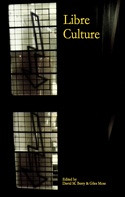Susan Buck-Morss: The Origin of Negative Dialectics: Theodor W. Adorno, Walter Benjamin, and The Frankfurt Institute (1977-) [English, Spanish]
Filed under book | Tags: · 1930s, 1940s, 1950s, aesthetics, art, biography, critical theory, dialectic, Frankfurt school, history, literary criticism, logic, marxism, music, negative dialectics, philosophy, theory, truth

Publisher The Free Press, a division of Macmillan Publishing, New York, 1977
ISBN 0029049105
352 pages
review (Gillian Rose, History and Theory)
google books (EN)
Susan Buck-Morss at Monoskop wiki
The Origin of Negative Dialectics (English, 1977)
Origen de la dialéctica negativa (Spanish, trans. Nora Rabotnikof Maskivker, 1981, no OCR)
Luc Boltanski: On Critique: A Sociology of Emancipation (2009/2011)
Filed under book | Tags: · critical sociology, critical theory, critique, sociology

The relationship between sociology and social critique has haunted the discipline since its origins. Does critique divert sociology from its scientific project? Or is critique the ultimate goal of sociology, without which the latter would be a futile activity disconnected from the concerns of ordinary people? This issue has underpinned two divergent theoretical orientations that can be found in the discipline today: the critical sociology that was developed in its most elaborate form by Pierre Bourdieu, and the pragmatic sociology of critique developed by Luc Boltanski and his associates.
In critical sociology, description in terms of power relations underscores the potency of mechanisms of oppression, the way the oppressed passively endure them, going so far in their alienation as to adopt the values that enslave them. Pragmatic sociology, by contrast, describes the actions of human beings who rebel but who are endowed with reason. It stresses their ability, in certain historical conditions, to rise up against their domination and construct new interpretations of reality in the service of critical activity.
In this major new book Boltanski develops a framework that makes it possible to reconcile these seemingly antagonistic approaches – the one determinist and assigning the leading role to the enlightening science of the sociologist, the other concerned to stick as closely as possible to what people say and do. This labour of unification leads him to rework central notions such as practice, institution, critique and, finally, ‘social reality,’ all with the aim of contributing to a contemporary renewal of practices of emancipation.
First published in French as De la critique, Editions GALLIMARD, Paris, 2009
Translated by Gregory Elliott
Publisher Polity, 2011
ISBN 0745649645, 9780745649641
Length 200 pages
David M. Berry, Giles Moss (eds.): Libre Culture: Meditations on Free Culture, 2nd ed. (2008)
Filed under book | Tags: · code, commons, copyleft, creative commons, critical theory, floss, free culture, free software, free speech, freedom, intellectual property, open hardware, open source, software, technology

“Libre Culture is the essential expression of the free culture/copyleft movement. This anthology, brought together here for the first time, represents the early groundwork of Libre Society thought. Referring to the development of creativity and ideas, capital works to hoard and privatize the knowledge and meaning of what is created. Expression becomes monopolized, secured within an artificial market-scarcity enclave and finally presented as a novelty on the culture industry in order to benefit cloistered profit motives. In the way that physical resources such as forests or public services are free, Libre Culture argues for the freeing up of human ideas and expression from copyright bulwarks in all forms.”
Publisher Pygmalion Books, Winnipeg, 2008
Res Divini Juris Libre Commons Licence
172 pages
via archive.org
PDF, PDF (updated on 2017-10-25)
Comment (1)
